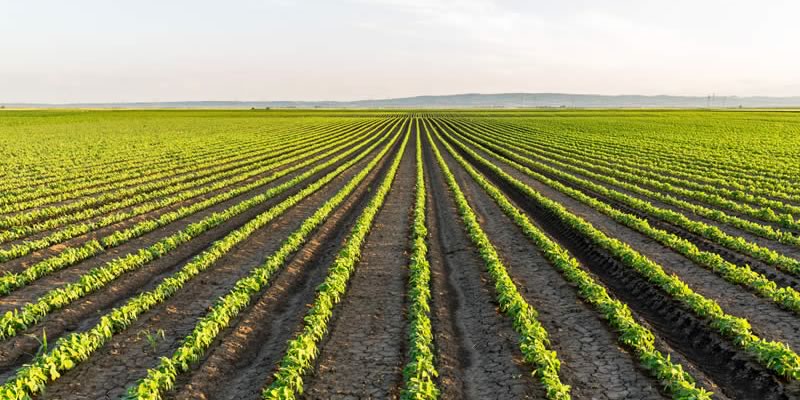Commercial Agriculture In Nigeria: Challenges and Solutions
Commercial Agriculture in Nigeria: Challenges and Solutions
Commercial agriculture in Nigeria holds immense potential for economic growth, employment generation, and food security. However, it faces numerous challenges that hinder its full development. Here, we explore these challenges and propose viable solutions.
Challenges
- Inadequate Infrastructure
- Overview: Poor infrastructure, including inadequate roads, unreliable power supply, and limited access to water, significantly hampers agricultural productivity.
- Impact: High transportation costs, post-harvest losses, and limited market access.
- Sources: The World Bank highlights infrastructure as a critical barrier to agricultural development in Nigeria .
- Limited Access to Finance
- Overview: Farmers often face difficulties in accessing credit due to high-interest rates, stringent lending conditions, and lack of collateral.
- Impact: Inability to invest in modern farming equipment, quality seeds, and fertilizers, limiting productivity.
- Sources: According to the Central Bank of Nigeria, access to finance is a significant challenge for farmers .
- Inconsistent Government Policies
- Overview: Frequent changes in agricultural policies and lack of continuity disrupt long-term planning and investment.
- Impact: Uncertainty for investors and farmers, leading to reduced investments and inefficiencies.
- Sources: The International Food Policy Research Institute (IFPRI) discusses the negative impact of policy inconsistency on agriculture .
- Land Tenure Issues
- Overview: The complex land tenure system in Nigeria often makes it difficult for farmers to secure land rights.
- Impact: Limits large-scale farming and deters investment in land improvement and conservation.
- Sources: The Food and Agriculture Organization (FAO) identifies land tenure issues as a significant constraint to agricultural development .
- Climate Change and Environmental Degradation
- Overview: Climate change leads to unpredictable weather patterns, affecting crop yields. Environmental degradation, such as soil erosion and deforestation, exacerbates the problem.
- Impact: Increased vulnerability to food insecurity and reduced agricultural productivity.
- Sources: The Nigerian Meteorological Agency (NiMet) reports on the adverse effects of climate change on agriculture .
Solutions
- Investment in Infrastructure
- Solution: Government and private sector investment in rural infrastructure, including roads, electricity, and irrigation systems.
- Expected Outcome: Reduced transportation costs, decreased post-harvest losses, and improved market access.
- Example: The Nigeria Rural Access and Agricultural Marketing Project (RAAMP) aims to enhance rural infrastructure to support agriculture .
- Improved Access to Finance
- Solution: Development of agricultural credit schemes with favorable terms, such as lower interest rates and flexible repayment schedules.
- Expected Outcome: Increased investment in modern farming technologies and inputs, leading to higher productivity.
- Example: The Anchor Borrowers’ Programme (ABP) by the Central Bank of Nigeria provides low-interest loans to farmers .
- Stable and Supportive Policies
- Solution: Establishment of stable and supportive agricultural policies with input from stakeholders to ensure consistency and long-term planning.
- Expected Outcome: Increased investor confidence and sustained agricultural growth.
- Example: The Agricultural Promotion Policy (APP) aims to provide a stable policy framework for the agricultural sector .
- Land Tenure Reform
- Solution: Simplification of the land tenure system to secure land rights for farmers, facilitating large-scale farming.
- Expected Outcome: Increased investment in land improvement and sustainable farming practices.
- Example: The Land Use Act amendment proposals seek to streamline land ownership processes .
- Climate-Smart Agriculture
- Solution: Adoption of climate-smart agricultural practices, such as drought-resistant crops, improved irrigation techniques, and sustainable land management.
- Expected Outcome: Enhanced resilience to climate change, increased productivity, and environmental sustainability.
- Example: The Climate Smart Agriculture (CSA) project by the Nigerian government and international partners promotes sustainable farming practices .
Conclusion
Commercial agriculture in Nigeria faces significant challenges, but with strategic interventions and supportive policies, these obstacles can be overcome. Investment in infrastructure, improved access to finance, stable policies, land tenure reform, and climate-smart agriculture are critical to unlocking the sector’s potential. By addressing these issues, Nigeria can achieve sustainable agricultural growth, food security, and economic prosperity.
References
- The World Bank – Link
- Central Bank of Nigeria – Link
- International Food Policy Research Institute (IFPRI) – Link
- Food and Agriculture Organization (FAO) – Link
- Nigerian Meteorological Agency (NiMet) – Link
- Nigeria Rural Access and Agricultural Marketing Project (RAAMP) – Link
- Anchor Borrowers’ Programme (ABP) – Link
- Agricultural Promotion Policy (APP) – Link
- Land Use Act Amendment Proposals – Link
- Climate Smart Agriculture (CSA) – Link








LEAVE A COMMENT
You must be logged in to post a comment.